- Home
- Fay Weldon
3 Great Historical Novels Page 10
3 Great Historical Novels Read online
Page 10
‘Besides,’ she said with a shrug, ‘I fail to see how what my uncle and I speak of affects you.’
‘I would not expect you to, Miss Mahoney. Perhaps I should rephrase my question. Did you notice anything unnatural about your uncle when last you saw him?’
Rhia caught Laurence’s eye. He looked as though he might interrupt, but seemed to think better of it. She bit her lip, remembering Ryan’s leave-taking. ‘Yes. He was … he seemed troubled. Even—’ She stopped herself. She was talking to a newspaperman, after all. He might even be a penny-a-liner. She should be protecting her uncle’s privacy, not telling a man she barely knew and whom she was already suspicious of about his affairs.
Both men were watching her, waiting for her to say something more. Rhia pulled her cloak around her and looked down at her hands, silent.
Laurence spoke, softly. ‘Dillon can be trusted, Miss Mahoney. He is here to help. Please tell us what you think.’
She believed, at least, that Laurence could be trusted and if he thought she should talk to the journalist then, she supposed, she must. ‘I thought he seemed worried.’ She would not tell him about Ryan’s financial circumstances, it was simply none of his business.
Dillon nodded thoughtfully. ‘And what about this letter, Blake?’ he asked, turning to his friend. Laurence looked at Rhia almost apologetically.
‘He’d had a letter from Josiah. Antonia knows nothing of it – she would only fret. It was posted from Bombay and written only days before he drowned. Ryan would tell me nothing more about it but that its contents were extremely worrying.’
Dillon nodded thoughtfully. ‘We should try and find it, before the Yard does.’
Rhia looked out of the window. They were on a bridge. She wished she could take some pleasure in the carnival-like bobbing of boats on the river and the elegance of the stone spires and turrets along the skyline. She could feel Dillon’s eyes on her as they crossed the river. She had not made a good impression and she did not care.
Brocade
In a lane that ran between two brick storehouses, a huddle of street girls rearranged themselves hopefully. Bosoms were hoisted and hips tilted, but when it was clear that the carriage was in China Wharf on other business, they returned to slouching and gossiping.
The hansom halted outside a nondescript black door and Rhia alighted quickly, relieved to be free from the oppressive silence of the carriage.
Mrs Bribb, a sallow, harried woman, answered their knock surrounded by children. She was clearly relieved when Mr Dillon introduced himself and his companions. They followed her up a circular stair of blacked iron to the first floor where the grassy smell of raw silk was unmistakable.
Outside the only door on the landing, Mrs Bribb jangled a brace of keys looking for the right one. She shooed away the children who, Rhia realised, were hanging about because they wanted to have a look at the dead body.
‘Could you tell us how you came to find him, Mrs Bribb,’ Dillon coaxed quietly as she hesitated with the key at the ready.
‘He said he’d be leaving Tuesday evening, and isn’t it strange, because I was certain I heard the door below. I came this morning to clean around, as I do when Mr Mahoney’s away, and I find him,’ she made the sign of the cross, ‘on the floor and one of his peculiar old firearms in his hand. Merciful heavens! I’m still in a blessed dither. I’ve not touched a thing, I wouldn’t, not in the presence of the dead.’ She turned the key in the latch and the heavy door creaked open. Rhia steeled herself against whatever sight awaited her inside.
They entered a variegated forest of giant, freestanding rolls of cloth of every imaginable weave, quality and pattern. Indian, Chinese, French and American. Devoré and brocade, worsted, lawn and damask. By the door were several rolls lying on their side, still wrapped in hessian and rope as though they were newly arrived. Rhia bent over one impulsively and pulled away a little of the hessian. It was silk, embroidered with a pattern of swirling autumn leaves. The pattern was almost identical to the one she had drawn last night. She remembered her dream about Ryan and shivered. She moved away quickly, following the others through the upright bolts of cloth, barely looking at it. She could take no pleasure in it.
Mr Dillon navigated confidently towards the source of light against the far wall and Rhia wondered how long ago he had been here and what his business with Ryan was. It was now clear that the room occupied the entire second floor of the storehouse.
The body of Ryan Mahoney lay at the foot of an enormous mahogany desk. He was on his front with his arms at right angles to his body, as though he had raised them to break his fall. In his right hand was a pistol with a silver barrel and carved ivory hilt. The weapon looked deviously beautiful, as though it might have beckoned to a man who was weakened by desperation. There was a dark spillage on the floorboards beneath Ryan’s left armpit and under his head. It took Rhia a moment to understand that it was blood. She felt her legs quiver. Ryan’s bloodless face was turned towards the pistol, and looked as though it was modelled from tallow, but for a rime of dark red where it rested. His eyes were, mercifully, closed.
It was true. He was dead.
She had needed to see it, but it turned her cold until she had to clench her teeth to stop them from chattering.
Mrs Bribb shuddered and crossed herself again. ‘I never liked them pistols and such.’ She cast a wary glance towards a cabinet whose upper shelves displayed the prizes of Ryan’s collection. ‘No one heard the shot, so it must have been when there was a ship in. There’s all manner of fuss then, and everyone down by the water.’ Mrs Bribb was edging away, towards the door. ‘I best be getting on. Call when you’re done here and I’ll lock up.’
Mr Dillon bowed to her as graciously as if she were a dowager. ‘Sincere thanks, Mrs Bribb. Perhaps you would be so kind, when you notify the constabulary, as to not tell them that anyone else has been to call?’
‘Don’t you be worrying about that, sir. I won’t breathe a word of it and neither will any of my brood. We know better, around these parts, than to do the bobbies any favours. Good day to you all and God bless you, miss, in your sorrows. I’ll be brewing a kettle of strong tea downstairs, should you need it.’
Mrs Bribb disappeared. Dillon was walking in a slow circle around the body as though measuring something, while Laurence sat, white faced, on a packing crate. Rhia looked around for something to focus on, besides the body. The front end of the storeroom was spacious and shabbily comfortable and contained the basic requirements of a home. There was an expensive-looking leather armchair at one end, and beside it stood the dresser containing the pistols. At the opposite end was a small range and a pine table. The desk and a French day bed were in between, beneath the row of long windows. From here, one could look down over China Wharf and across the Thames.
Rhia remembered Ryan’s leave-taking two days earlier. The light had touched his hair in such a particular way, the suggestion of a guarding angel. He said that he would see her at the end of the week and she had detected no ambiguity; no hint of what was to come. This must have been an act of desperation. How could she not have seen it coming? What if she could have done something to prevent it? She felt sick.
She wandered amongst her uncle’s belongings. Her gaze lingered on an immaculately tailored coat and polished leather top hat hanging up on hooks, travelled to white shirtfronts and collars that Ryan would never wear again. She forced herself to look at the fatal firearms, the quality of craftsmanship clear even to one as ignorant as she. These were unexpected objects of beauty, whose parts were variously of polished woods, figured ivory, silver, gold and nickel.
Rhia imagined, fleetingly, that she smelt lanolin and lavender and its familiarity comforted her. A small draught lifted a scrap of white on the floor beneath the hooks; a calling card. Had it been there a moment ago? She picked it up. On it was printed the address of the Jerusalem Coffee House on Lombard Street in Cornhill. On the back was a series of numbers and an oriental character. She put the c
ard in her reticule absently and when she glanced towards the other end of the room she caught Mr Dillon watching her. He looked away.
She was drawn to the long windows that stretched the length of the room. The view was of storehouses and rooftops, and a web of masts and rigging behind them. She imagined Ryan watching a shipload of cloth being unloaded, contemplating his own death. The thought was terrible. What level of despair preceded the wish to die? The masts swayed gently with the river tide and she had another sickening thought. Her father. How would he bear it?
She closed her eyes and lowered herself to the floor, back to the brick wall beneath the window. She willed the veil to lift as it had on the night of the fire. Perhaps Others could help her, be they ghosts or spirits or whatever creatures roamed the Otherworld. What purpose did they serve, except to be a nuisance to people such as herself? But there was no disturbance of the air now; no wisping in the reaches of her vision; only the harsh world of the living. She became aware of the low murmur of voices from the opposite end of the room and turned to find that both men were watching her. No doubt they thought her deranged by grief. Perhaps she was. She got to her feet slowly, and felt her shoulders hunch. She pushed them back with effort and walked towards them, keeping her gaze level; averted from Ryan’s body.
‘Is there anything?’ she asked, hoping there was nothing and that they had decided it was an accident after all.
Mr Dillon answered. ‘A cursory search has unearthed nothing, but it is a task in itself, as you can see.’ He gestured to the towers of documents and ledgers and correspondence on the desktop. ‘I am curious about the finer details of Mr Mahoney’s death. I would like to spend a little longer here, if you do not object?’
How could she object? There was no one else to call on. ‘Of course. I am grateful. I am at loss …’ Her voice was unreliable again so she left the sentence unfinished.
Laurence took her hand and it seemed perfectly natural. ‘Miss Mahoney, might I advise you?’ Rhia thought she saw a glimmer of his inherent waywardness, in spite of his pallor. He was clearly remembering his attempt at advising her earlier.
‘It would be a relief.’ She smiled as best she could.
‘There are arrangements to be made and it is crucial that we attend to them quickly. You must keep busy. No priest will question Ryan’s right to a proper burial if we keep the circumstances of his death to ourselves. And we must take some advice on funeral arrangements. We will visit the good Mrs Bribb and her kettle of tea. She will know which church your uncle attended.’
Rhia agreed, partly because there was something else she wanted to ask the good Mrs Bribb. She turned to Mr Dillon. ‘Please don’t keep things from me, no matter how disturbing you think they might be. I am equal to the truth.’
‘Yes, I can see that you are.’ He paused. ‘May I ask what has brought you to London?’
The question was blunt and Rhia felt, as she had in the carriage, that it was she who was being investigated.
‘I had hoped to find a position, but now …’ She looked out of the window and bit her lip, unable to continue. She had no idea what, now.
‘If you have come this far, Miss Mahoney, perhaps you might see how much further you can go?’ This was unwarranted advice from a stranger, and it irked her. She might have retorted, but she hadn’t the spirit. Mr Dillon’s expression was unreadable. He bowed politely and turned away to examine some papers on Ryan’s desk.
Mrs Bribb’s residence was a narrow annexe at the rear of the building, looking out onto a tiny alleyway where a band of scruffy children were playing. She tidied around in her small, cluttered kitchen, and then stood with her hands on her hips inspecting Rhia. ‘Will you be needing something for hysterics, miss?’
Rhia couldn’t help a small smile. ‘Do I appear to?’
‘Not as far as I can see, but then, well-bred ladies don’t always show it. I have a syrup I take myself when they’ – she gestured towards the alleyway where it sounded as though a cuff fight was in progress – ‘get the better of me. It’s only hyssop, skunk cabbage and Solomon seal root with a little ginger.’
It sounded vile. ‘Tea will be fine, I think.’
‘And you’ll need some victuals.’ Mrs Bribb set about preparing a tray of apple jam and cheese and a slightly stale knead cake. Rhia took a bite or two, to be polite, and when she had made a show of being strengthened by jam and tea, she remembered her question.
‘Mrs Bribb, you said you thought my uncle might have fired his pistol when there was a ship in?’
‘Well, it seems the perfect time, if you take my meaning.’
‘Because of the noise?’
‘That’s it.’
Rhia frowned, trying to grasp something that kept sidling away from her. ‘What time was the last ship in?’
‘Tuesday evening.’
‘Where was it from?’
‘Bombay, I believe.’
‘And was any of the cloth delivered to him?’
‘I believe so but I couldn’t say, miss. I don’t take an interest, generally. There’s merchant’s storage on the floors below and above Mr Mahoney’s, so there’s always comings and goings.’
Rhia could feel Laurence’s eyes on her.
‘What are you thinking, Miss Mahoney?’
‘I honestly don’t know. Would my uncle have gone to the trouble of receiving a shipment of cloth, and then … ?’
‘I see.’ Laurence nodded, but Rhia could see that he thought she was distraught. She could not shake the idea that he might have received some news that had distressed him, perhaps tipped the balance. Mrs Bribb gave them directions to the chapel of St Andrews, three streets away. They thanked her and left.
The elderly priest at St Andrews answered the door of the priory, tousled and yawning and smelling of Communion wine. He squinted at them as though he had not seen the light of day in a week, but assured them that there was a place in the small graveyard, just as there was a place in the hereafter, for all members of his flock. It transpired that Ryan Mahoney had been a generous patron, and had thus purchased his place in heaven and a respectable burial.
Before returning to his meditations, the priest directed them a little farther along the river to Spice Quay, where they would find a cabinetmaker. Rhia did not question this peculiarity until she and Laurence were on their way.
‘Do you think the priest thought that we wanted some furniture made?’
Laurence smiled wanly. ‘Cabinetmakers in London are, often as not, also funeral directors.’
The cabinetmaker’s workshop rang with the sound of hammering and sawing and smelt of wood shavings and linseed. For three pounds, a respectable but low-key burial was arranged for the following Tuesday. It occurred to Rhia that this would be one week exactly after her arrival. Three pounds would purchase a hearse with one horse, a stout elm coffin, and a coachmen and bearers with hatbands and gloves.
Laurence paid the cabinetmaker so swiftly that she had no time to protest. He assured her that it was a privilege to be able to spend a few pounds on a friend. He took her elbow and led her to their carriage. The driver in the pork-pie hat was smoking and whistling cheerfully. He’d bagged a good long fare today.
Rhia watched the sun hover above the river as they crossed Blackfriars Bridge, sprinkling its dying light across the dark water. It took all her strength not to shrink into the corner of the carriage.
The streets were dark and shining with gaslit drizzle by the time they reached Cloak Lane. When Juliette opened the door, Rhia walked past her without removing her cloak. She felt as though she were weightless. She reached the bottom of the stairs as Antonia came to the door of her husband’s study. Without warning, Rhia sank to the bottom stair, no longer weightless, though she was relieved to be sitting.
‘Juliette! Fetch my smelling salts!’ Antonia and Laurence reached her surprisingly quickly, and Rhia wondered why they were in such haste when she’d only sat down on the stair. With Antonia at one elbow and Laurence at t
he other, she was half-carried up the stairs and to her room. Laurence whispered something before he left, but she neither knew nor cared what it was.
Juliette took a buttonhook to the side of her bodice nimbly, and Antonia unpinned her hair. The company of these women was soothing, but she had never felt so far from her mother’s arms. She wanted to go home. In the space of one day, London had been transformed from a place brimful with life and expectation, to a place where death visited the unwary.
She floated into sleep, aware that there was someone beside her. Antonia? No. This woman’s hair was like strands of sea mist and she wore a girdle woven of seagrasses and coral, from which hung pieces of shell. Rhia decided that she must be asleep, since it was unlikely that she was dead. Ryan was dead. One shell looked like a pearly key in the shape of a simple, three part knot; the same knot-work that was on her silver pen. Rhiannon’s key to the Otherworld.
Chine
Michael woke, as he often did, in the basement of Maggie’s brothel. The first thing he laid eyes on was the great, dusty cog of the Stanhope with its ink-blacked rollers and wooden press levers. He lay for a while, musing that he hadn’t seen any of the Smith boys around for a few weeks and remembering little tasks that needed attending to. He’d noticed, for instance, that there was a small chip out of the top of the letter R, which made it look like a K. The only type-blocks he could find on George Street were wooden, not lead, and hand-cut, and his paper came from the butcher’s shop at the quay. He enjoyed hand-setting, inking and printing the text as much as he liked writing it. It all gave him great satisfaction and had kept him from despair on many homesick nights.
The cast iron Stanhope press might have been the largest object ever stolen by a pickpocket. Before its arrival in Maggie’s basement, it had gathered cobwebs in the abandoned offices of the Defender for a year before it came to Michael’s attention. The Defender was a short-lived newspaper enterprise, being a publication with Irish sympathies and liberal views. Few who had an interest in its contents could afford a penny for a weekly. Michael liked to think that the Stanhope had been liberated, rather than stolen, and returned to its true calling.

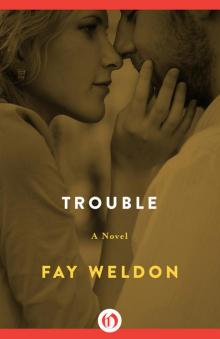 Trouble
Trouble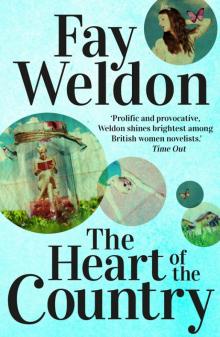 The Heart of the Country
The Heart of the Country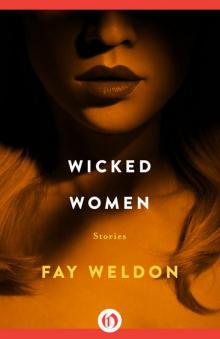 Wicked Women
Wicked Women Mischief
Mischief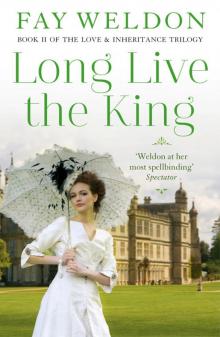 Long Live the King
Long Live the King Remember Me
Remember Me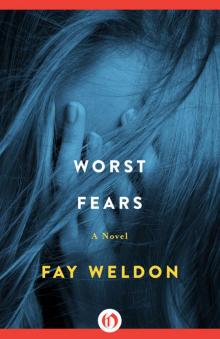 Worst Fears
Worst Fears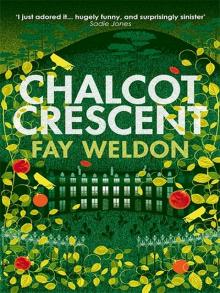 Chalcot Crescent
Chalcot Crescent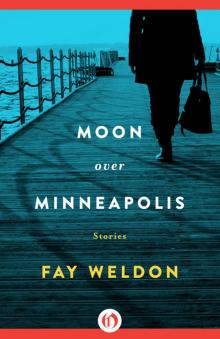 Moon Over Minneapolis
Moon Over Minneapolis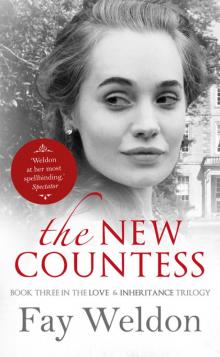 The New Countess
The New Countess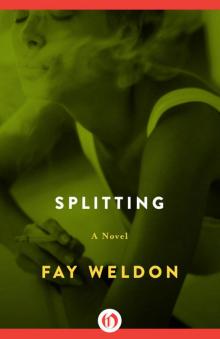 Splitting
Splitting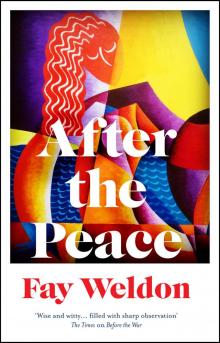 After the Peace
After the Peace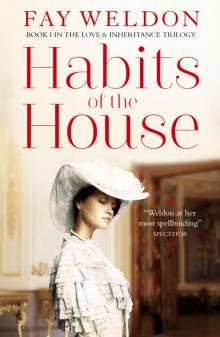 Habits of the House
Habits of the House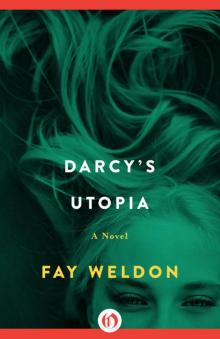 Darcy's Utopia
Darcy's Utopia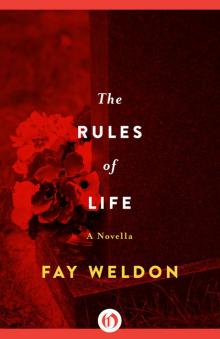 The Rules of Life
The Rules of Life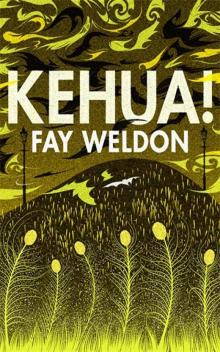 Kehua!
Kehua!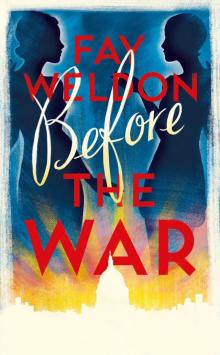 Before the War
Before the War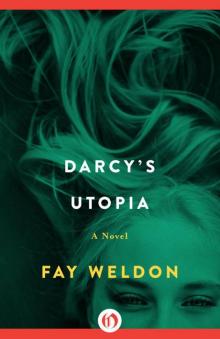 Darcy's Utopia: A Novel
Darcy's Utopia: A Novel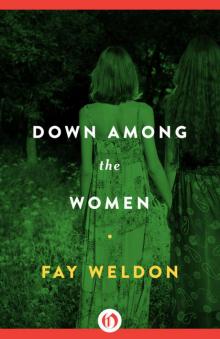 Down Among the Women
Down Among the Women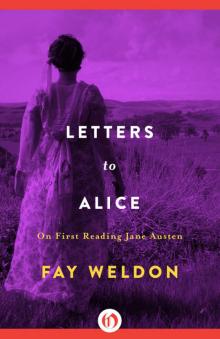 Letters to Alice
Letters to Alice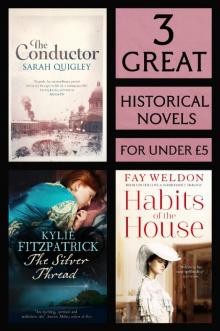 3 Great Historical Novels
3 Great Historical Novels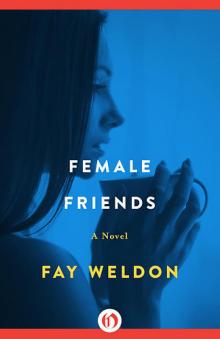 Female Friends
Female Friends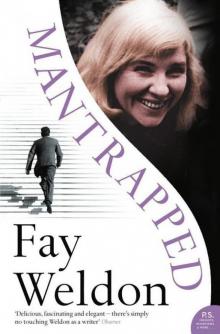 Mantrapped
Mantrapped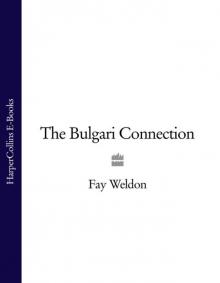 The Bulgari Connection
The Bulgari Connection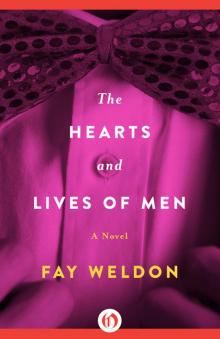 The Hearts and Lives of Men
The Hearts and Lives of Men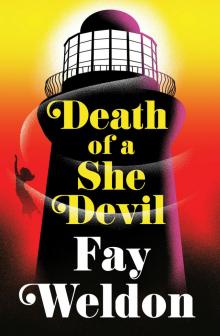 Death of a She Devil
Death of a She Devil